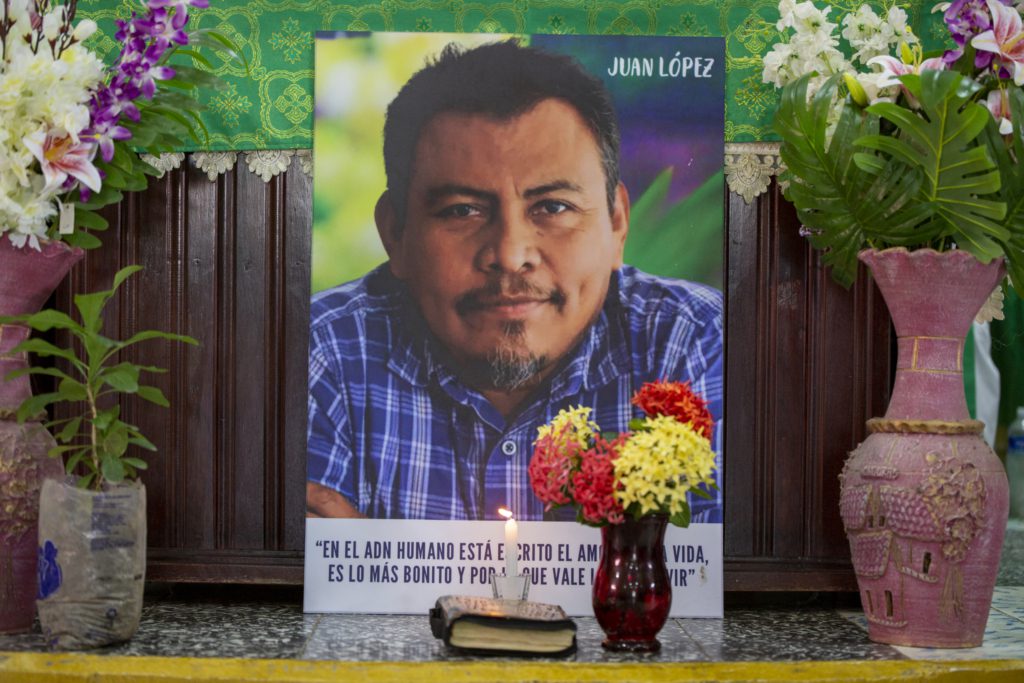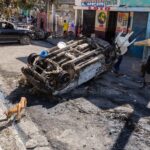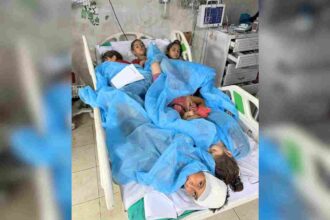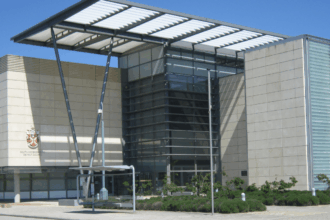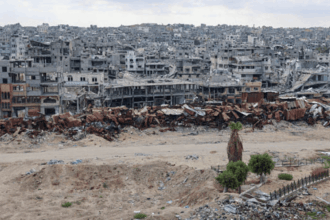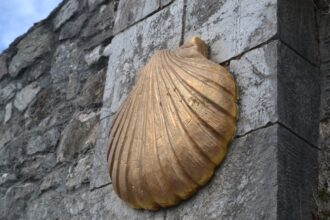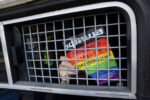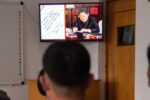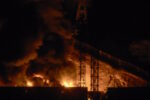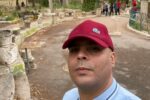By: Graciela Martínez, senior campaigner, and Adeline Neau, researcher for Central America at Amnesty International.
A year ago, in Tocoa, northern Honduras, environmentalist Juan López was shot dead in front of his family, friends and neighbours as he was leaving a religious service. The alleged perpetrator of the shooting and two alleged accomplices have been formally charged and are being held in pretrial detention. However, those who may have ordered his murder have not yet been held to account. Since then, his family and fellow activists have launched a legal battle to seek justice, truth and reparation.
Juan’s murder, like that of Berta Cáceres almost ten years earlier, has left a huge void in the leadership of environmental defence in Honduras. For his community role in promoting ecology and the environment within the Catholic Church, Pope Francis himself at the time mourned Juan’s death.
Juan’s murder, like that of Berta Cáceres almost ten years earlier, has left a huge void in the leadership of environmental defence in Honduras.
Honduras tops the list of per capita killings of environmental defenders worldwide over the last decade, according to reports by Global Witness. In addition to lethal violence, environmental defenders often face threats, harassment, arbitrary detention and even enforced disappearance. All this in a climate of impunity.
At the start of her term in office, the president of Honduras, Xiomara Castro, promised to protect the environment and those who defend it. However, with just a few months of the term remaining, we note with concern her repeated failure to fulfil those human rights commitments.
Regarding the right to a healthy environment, in 2024 Congress approved a decree to protect the Carlos Escaleras National Park defended by Juan López and his community, a decree that is yet to be implemented. However, Congress also promoted a controversial bill to ease the granting of environmental licences for certain projects. In addition, the president has not yet signed the Regional Agreement on Access to Information, Public Participation and Justice in Environmental Matters in Latin America and the Caribbean, known as the Escazú Agreement, which, among other issues, includes specific provisions for the protection of environmental defenders.
The murder of Juan López shines a harsh light on these contradictions. The crime was committed in Tocoa, in the Aguán Valley, an area rich in biodiversity and among the most conflict-ridden in the country. Although Juan had precautionary measures granted in his favour by the Inter-American Commission on Human Rights, the Honduran authorities failed to guarantee his protection. The National Protection System, responsible for his safety, has been strongly criticized by local and international organizations for its inefficiency.
The history of violence in Aguán goes back a long way. Throughout the 20th and 21st centuries, banana, palm oil and mining companies have disputed its lands, with the endorsement of the authorities, thereby weakening protection of communal property. Unofficial figures suggest that nearly 200 people have disappeared or been murdered in the region since 2009. In February 2022, to address this serious situation, farmer organizations signed an agreement
with the Honduran government that included the creation of a tripartite commission to investigate human rights violations. However, three years later, no significant progress has been made. Furthermore, in 2023, three individuals associated with the Municipal Committee for the Defence of Common and Public Goods (CMDBCP) – led by Juan – were murdered, with no justice having been served in these cases to date. Others have been forced to leave the region due to the violence.
Juan moved as a child to Bajo Aguán with his family, who were looking to work on the land. It was there that he learned of the challenges facing farming communities and began to get involved in defending their rights. Years later, in 2015, he and other colleagues who shared his faith and activism, concerned about community issues, in particular regarding water, founded the Municipal Committee for the Defence of Common and Public Goods.
The mobilization of the communities of Tocoa came about in response to a series of decisions taken by the Honduran authorities. In 2012, Congress declared what is today the Montaña de Botaderos Carlos Escaleras Mejía National Park, to protect the area from the effects of heavy industries, including mining. However, a year later, that same Congress decided to extend the Park’s buffer zone, thereby reducing the extent of its most protected area. This opened the door for the government to grant mining permits there. As a result, between 2014 and 2015, the Honduran authorities granted exploration and exploitation concessions to a mining company. Since then, Juan and the Committee organized peacefully to defend the National Park, challenging the legality of the mining concessions and denouncing their impact on the water quality of the Guapinol and San Pedro rivers.
Attacks against Juan and the Committee soon materialized after the mobilizations, with smear campaigns, threats and trials. Several activists, including Juan, were wrongfully imprisoned. Amnesty International declared eight Committee activists prisoners of conscience in 2021; they spent more than two years in prison solely for peacefully defending the environment.
Juan’s murder is not an isolated incident. It is indicative of a systematic pattern of violence and institutional negligence that must stop. In the face of a global climate emergency, protecting the planet cannot come at the cost of human lives.
Juan’s murder is not an isolated event. It is indicative of a systematic pattern of violence and institutional negligence that must stop. In the face of a global climate emergency, protecting the planet cannot come at the cost of human lives.
Honduras will hold presidential elections on 30 November. It is time to demand that protecting the environment and those who defend it becomes a priority on the political agenda. Justice for Juan is a debt owed to his wife and two daughters, to his community and to our planet. Juan López is one of nine cases selected for Amnesty International’s annual global Write for Rights 2025 campaign.
OpEd Originally published in El País Americas: https://elpais.com/america-futura/2025-09-14/justicia-para-juan-es-justicia-para-el-medio-ambiente.html
